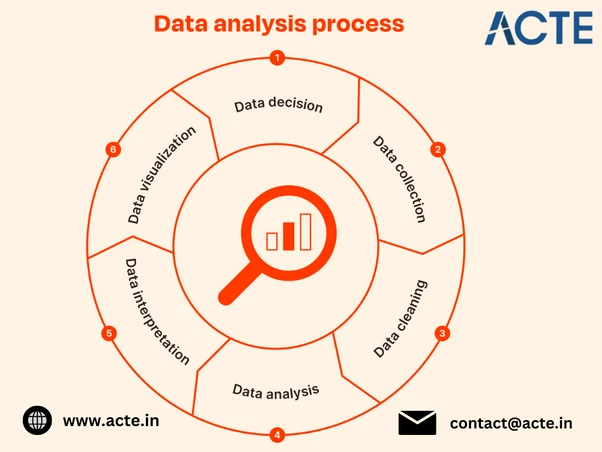In the digital era, businesses are inundated with data from numerous sources. The challenge lies in turning this raw data into meaningful insights that can drive business strategies and outcomes.
Looking for top-notch Data Analytics Training in Pune Discover comprehensive courses tailored to industry demands.
Data analytics provides the tools and methodologies needed to convert data into valuable intelligence. This blog explores the concept of data analytics, its core processes, and its practical applications across different industries.
What is Data Analytics?
Data analytics is the science of examining raw data to draw conclusions and make informed business decisions. The process involves several key stages:
Data Gathering: Collecting data from various sources, including customer interactions, digital platforms, and operational processes. This data serves as the raw material for analysis.
Data Cleaning and Preparation: Refining the collected data by removing inaccuracies, filling in missing values, and standardizing formats. This step ensures that the data is accurate and reliable.
Data Structuring: Organizing the data into a structured format, making it easier to analyze. This may involve categorizing, indexing, and integrating different data sets.
Analytical Processing: Utilizing statistical tools, algorithms, and machine learning techniques to analyze the data. This stage is focused on uncovering patterns, correlations, and trends.
Data Visualization: Representing the results of the analysis through visual tools like charts, graphs, and dashboards. This makes it easier to understand and communicate the findings.
How Industries Use Data Analytics
Data analytics is a versatile tool that is used across various sectors to enhance decision-making and improve efficiency. Here are some notable applications:
Retail and E-Commerce
Personalized Marketing: Retailers use data analytics to understand customer preferences and behaviors. By analyzing purchase histories and browsing patterns, they can offer personalized recommendations and targeted promotions.
Explore the depths of data analytics with a premier Data Analytics Course Online, accessible from anywhere, anytime.
Supply Chain Optimization: Data analytics helps in predicting demand and managing inventory, ensuring that products are available when and where they are needed, thus reducing costs and increasing efficiency.
Healthcare
Tailored Patient Care: In healthcare, data analytics is used to analyze patient data and develop personalized treatment plans. This approach improves patient outcomes and enhances the quality of care.
Operational Improvements: Hospitals and clinics use data analytics to streamline operations, manage resources, and reduce wait times, leading to better patient experiences.
Finance
Investment Analysis: Financial institutions analyze market data to make informed investment decisions. By identifying trends and assessing risks, they can optimize their investment strategies.
Fraud Detection: Data analytics helps in identifying unusual transaction patterns, enabling financial institutions to detect and prevent fraud more effectively.
Marketing
Campaign Effectiveness: Marketers use data analytics to measure the success of their campaigns. Insights into customer engagement and conversion rates help in refining marketing strategies.
Customer Segmentation: By analyzing customer data, businesses can segment their audience and tailor their messaging, improving the relevance and effectiveness of their marketing efforts.
Transportation and Logistics
Efficiency in Routing: Logistics companies use data analytics to optimize delivery routes and manage fleet operations. This leads to reduced fuel consumption and faster delivery times.
Predictive Maintenance: By analyzing data from vehicle sensors, companies can predict maintenance needs and prevent breakdowns, improving operational efficiency.
Sports
Performance Metrics: Sports teams use data analytics to track player performance and develop game strategies. This data-driven approach helps in improving team performance and winning games.
Enhancing Fan Experience: Data analytics helps sports organizations understand fan preferences and behaviors, enabling them to create more engaging and personalized experiences.
Conclusion
Data analytics is a critical component of modern business strategy, offering the insights needed to make informed decisions and stay competitive. Whether it\'s optimizing supply chains, personalizing customer experiences, or predicting market trends, the applications of data analytics are extensive and varied. As technology continues to evolve, businesses that leverage data analytics effectively will be better positioned to innovate and lead in their respective industries. Embracing data analytics is not just a necessity but a strategic advantage in the rapidly changing business landscape.

